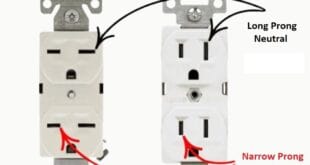Answer:
The output of a UPS (Uninterruptible Power Supply) can be either AC (Alternating Current) or DC (Direct Current), depending on the type of UPS. Most common UPS units provide AC output, while some specialized units can deliver DC output for specific applications.

Reasoning:
The output of a UPS (Uninterruptible Power Supply) can be either AC (Alternating Current) or DC (Direct Current), and this choice is determined by the specific application and requirements of the connected devices.
1. AC Output UPS:
AC output UPS systems are more common and versatile. They take in AC power from the mains and store it in batteries. When a power outage occurs, the UPS converts the stored DC power from the batteries back into AC power, providing a seamless transition for connected devices that require AC power. This is suitable for most electronic devices and appliances that operate on standard AC power.
2. DC Output UPS:
DC output UPS systems are less common and are usually designed for specialized applications. Some devices, such as telecommunications equipment, data centers, and certain industrial machinery, operate more efficiently or are designed to run on DC power. In such cases, a UPS can provide a continuous and stable DC output, ensuring uninterrupted power supply to these devices.
Reasoning for AC Output:
Compatibility: AC output is compatible with a wide range of devices, including household appliances, computers, and electronics that use standard power outlets.
Flexibility: AC output UPS units can power a variety of devices, making them suitable for homes, offices, and small to medium-sized businesses.
Standardization: Most power distribution systems deliver AC power, making AC output UPS units widely applicable and easier to integrate into existing setups.
Common Usage: The majority of consumer and commercial devices are designed to run on AC power, making AC output UPS units more prevalent and accessible.
Reasoning for DC Output:
Efficiency: Some devices, such as telecommunications equipment and certain industrial machinery, operate more efficiently on DC power. Using a DC output UPS can avoid unnecessary conversions and energy losses.
Niche Applications: DC output UPS units are tailored to specific industries and applications that prioritize DC power, ensuring a reliable power source without the need for additional converters.
Specialized Devices: Certain devices, like high-performance computing clusters or specialized medical equipment, may require a direct DC power source to function optimally.
Redundancy: In setups where multiple devices run on DC power, a DC output UPS can provide redundancy and backup power tailored to those devices’ needs.
In short, the choice between AC and DC output for a UPS depends on the specific requirements of the devices it will be powering. AC output is more versatile and compatible with a wider range of devices, while DC output is suited for specialized applications that prioritize efficiency and compatibility with devices designed for direct DC power.
FAQs
What is the output of a UPS?
AC or DC, depending on the UPS type and application.
Why would I need a UPS with AC output?
It’s versatile and works for most devices like computers and household electronics.
When would I choose a UPS with DC output?
For specialized devices like telecom equipment or machinery that operate efficiently on DC power.
Can an AC output UPS power devices that need DC?
Yes, with the help of an external DC-to-AC converter.
Do all UPS units provide both AC and DC output?
No, most common ones offer AC output, while some specialized ones offer DC output.
Is AC output more common than DC output?
Yes, AC output UPS units are more widely used and available.
What’s the advantage of using DC output UPS?
Efficient power delivery for specific devices, reducing conversion losses.
Are there UPS systems that combine AC and DC outputs?
Yes, some advanced systems offer dual output options for different device types.
Can a DC output UPS be used for home appliances?
Generally not recommended, as most appliances require AC power.
Do I need to consider the type of power my devices use before choosing a UPS?
Yes, understanding your devices’ power requirements helps you select the appropriate UPS output type.
 Electrical Engineering World Wiring a Brighter Tomorrow!
Electrical Engineering World Wiring a Brighter Tomorrow!


